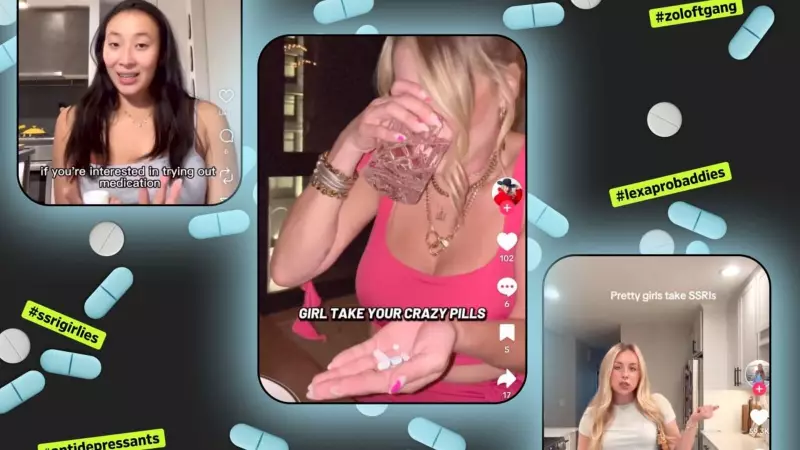
In a surprising cultural shift that's sweeping through social media and popular culture, antidepressants are undergoing a dramatic rebranding. What was once a heavily stigmatized medication is now being flaunted as the latest lifestyle essential among young adults, particularly women.
The New Social Media Flex
Platforms like TikTok and Instagram are witnessing a peculiar trend where users openly discuss their 'happy pills' with a sense of pride rather than secrecy. The phrase "Girl, take your crazy pills" has evolved from a dismissive remark to an empowering mantra, with influencers and everyday users sharing their medication journeys as part of their self-care routines.
From Stigma to Status Symbol
This normalization represents a significant departure from previous generations' approach to mental health medication. Where older demographics often concealed their antidepressant use, millennials and Gen Z are treating these prescriptions as they would luxury skincare or fitness supplements - essential tools for optimal living.
The trend highlights several fascinating developments:
- Reduced stigma around mental health discussions
- Medication being viewed as proactive self-care rather than reactive treatment
- Pharmaceuticals becoming part of personal branding and identity
- Generation gaps in how mental wellness is approached and discussed
Medical Community's Mixed Response
While mental health professionals acknowledge the benefits of reduced medication stigma, concerns persist about the potential trivialization of serious conditions. Some experts worry that framing antidepressants as lifestyle accessories might undermine their medical significance and proper usage protocols.
The Commercialization of Mental Wellness
This phenomenon coincides with the broader wellness industry's expansion into mental health spaces. What was once purely clinical is now intersecting with lifestyle branding, creating new conversations about how we perceive and discuss mental health treatment in modern society.
The transformation of antidepressants from hidden prescriptions to openly discussed 'lifestyle accessories' marks a pivotal moment in our cultural relationship with mental health - one that promises greater openness but also demands careful consideration of the implications.





